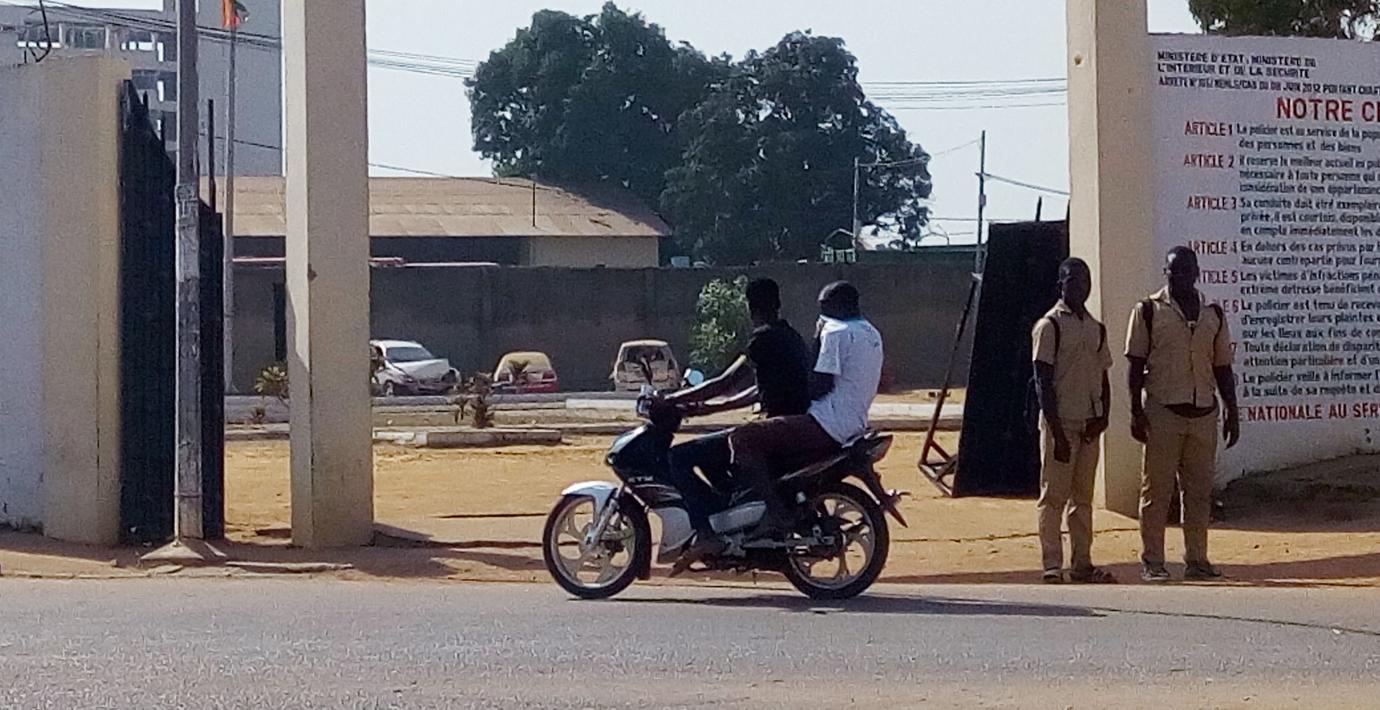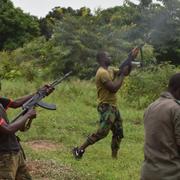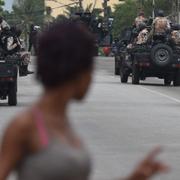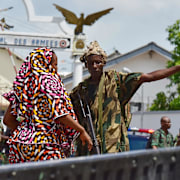
Kräver bonus på 8 000 dollar som utlovades i avtal
De före detta rebellerna som uppges ha tagit kontroll över staden Bouaké i Elfenbenskusten sägs kräva en bonus på 8 000 dollar och ett hem. Dessa förmåner ska ha varit del av ett avtal som slöts för att få slut på inbördeskriget i landet men levererades aldrig, rapporterar BBC.
Rebellerna integrerades i militären efter inbördeskriget. Enligt Reuters stängdes ett boende för runt 200 avhoppade soldater i Bouaké i november. Ett liknande uppror ägde rum 2014 då soldater krävde obetalda löner. Då gick regeringen med på att betala ut pengar till soldaterna som återvända till barackerna.
bakgrund
Elfenbenskusten
Wikipedia (en)
Ivory Coast (/ˌaɪvəri ˈkoʊst/) or Côte d'Ivoire (/ˌkoʊt dᵻˈvwɑːr/; KOHT dee-VWAHR; French: [kot divwaʁ]), officially named the Republic of Côte d'Ivoire (French: République de Côte d'Ivoire), is a country located in West Africa. Ivory Coast's political capital is Yamoussoukro, and its economic capital and largest city is the port city of Abidjan. Its bordering countries are Guinea and Liberia in the west, Burkina Faso and Mali in the north, and Ghana in the east. The Gulf of Guinea (Atlantic Ocean) is located south of Ivory Coast.
Prior to its colonization by Europeans, Ivory Coast was home to several states, including Gyaaman, the Kong Empire, and Baoulé. Two Anyi kingdoms, Indénié and Sanwi, attempted to retain their separate identity through the French colonial period and after independence. Ivory Coast became a protectorate of France in 1843–44 and was later formed into a French colony in 1893 amid the European scramble for Africa. Ivory Coast achieved independence in 1960, they were led by Félix Houphouët-Boigny, who ruled the country until 1993. It maintained close political and economic association with its West African neighbors while at the same time maintaining close ties to the West, especially France. Since the end of Houphouët-Boigny's rule in 1993, Ivory Coast has experienced one coup d'état, in 1999, and two religion-grounded civil wars. The first took place between 2002 and 2007 and the second during 2010-2011.
Ivory Coast is a republic with a strong executive power invested in its President. Through the production of coffee and cocoa, the country was an economic powerhouse in West Africa during the 1960s and 1970s. Ivory Coast went through an economic crisis in the 1980s, contributing to a period of political and social turmoil. Changing into the 21st-century Ivorian economy is largely market-based and still relies heavily on agriculture, with smallholder cash-crop production being dominant.
The official language is French, with local indigenous languages also widely used, including Baoulé, Dioula, Dan, Anyin, and Cebaara Senufo. In total there are around 78 languages spoken in Ivory Coast. The main religions are Islam, Christianity (primarily Roman Catholicism), and various indigenous religions.
Bouaké
Omni är politiskt obundna och oberoende. Vi strävar efter att ge fler perspektiv på nyheterna. Har du frågor eller synpunkter kring vår rapportering? Kontakta redaktionen



